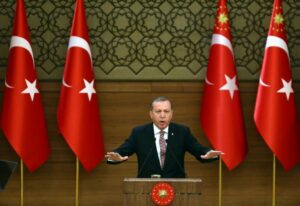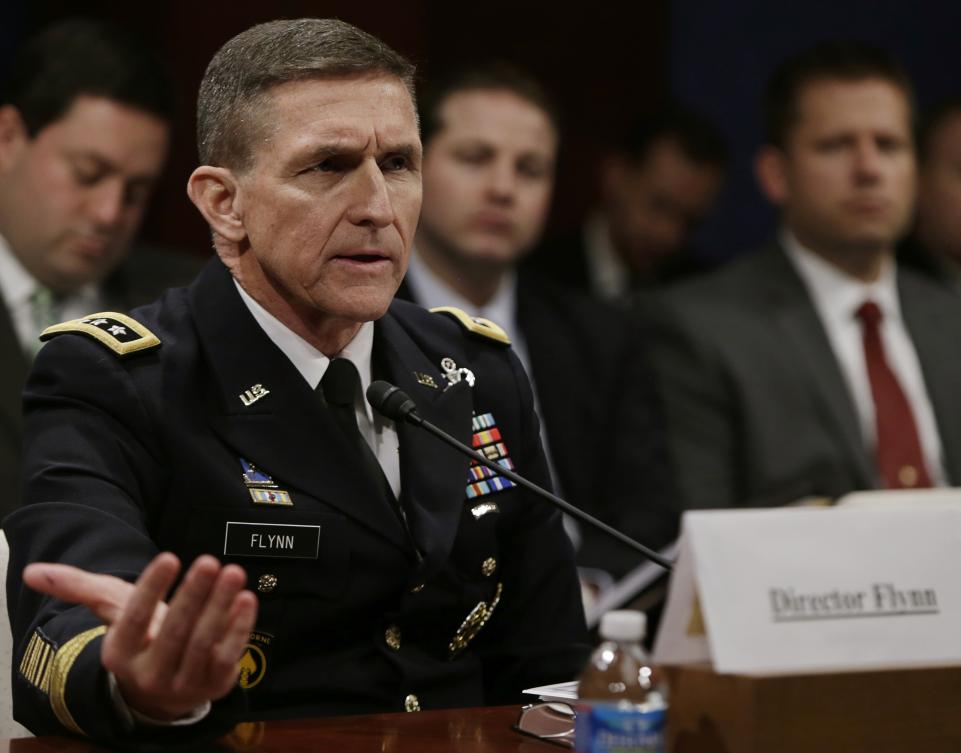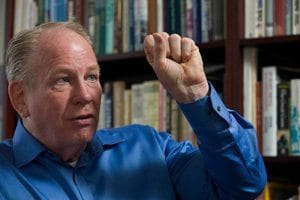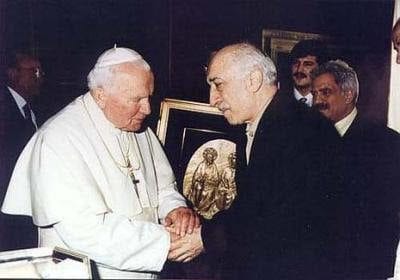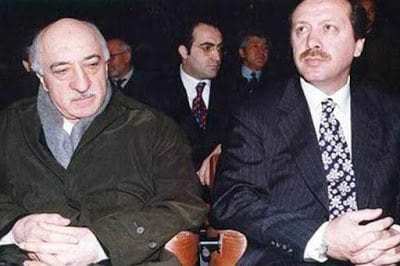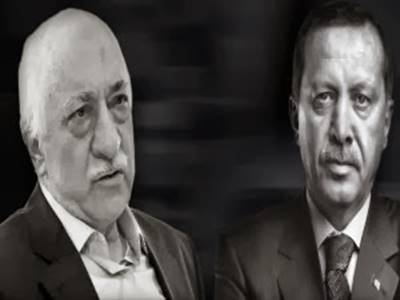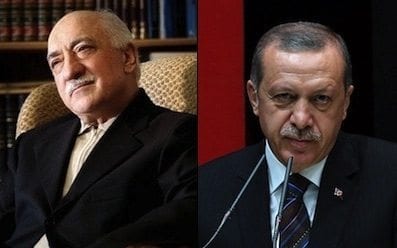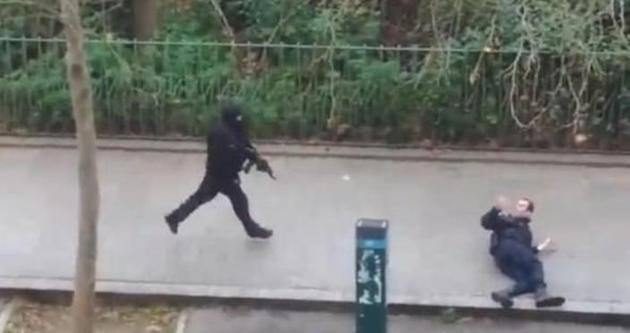Dani Rodrik
Unconventional thoughts on economic development and globalization

July 23, 2016
Is Fethullah Gülen behind Turkey’s coup? (with update)
If what Erdogan said on TV today is correct, there is no longer much doubt about the answer to this question. According to Erdogan, the officers who detained the chief of general staff, Hulusi Akar, on July 15 offered to put Akar in contact with Gulen. As of this writing, Akar has not made any statements confirming this. (See update on this at the end of this entry.) But if he does, it will be manifest that responsibility for the coup attempt reaches all the way to Pennsylvania. It will be very difficult for the U.S not to extradite Gulen, subject, of course, to (some huge) fair trial concerns back in Turkey.
What evidence, other than Erdogan’s word, is there that Gulen is behind the coup attempt?
Years ago when my wife Pinar Dogan and I first began to investigate the bogus documents in the Sledgehammer case, we were stuck by how quick many observers were at assigning blame: “it’s the Gulenists’ work of course,” they would say, “this is the kind of thing they do.” We did not know much about the Gulen movement at the time. So we hesitated, and in our early writings we listed Gulenist involvement as only one of the possibilities.
Over time, we learned a lot. The evidence that Gulenists were heavily involved in – and quite likely stage managed – Sledgehammer and many other similar sham trials accumulated. By now it should be clear to any objective observer that the Gulen movement goes much beyond the schools, charities, and inter-faith activities with which it presents itself to the world: it also has a dark underbelly engaged in covert activities such as evidence fabrication, wiretapping, disinformation, blackmail, and judicial manipulation.
In late 2013 the fight between Erdogan and the Gulen movement became public. Ever since, the AKP has purged suspected Gulenists from many state institutions and closed down their largest media and business operations. There was one state institution which had remained immune from these purges: the army. Perhaps because the top brass were reluctant to relive a trauma similar to the Ergenekon-Sledgehammer, none of the suspected Gulenists in the military had been touched.
But that was about to change. In the run-up to the July 15 coup attempt, a few officers were detained for allegedly fabricating evidence in the infamous Izmir espionage case. There were indications that a much larger sweep was being readied. And rumors were flying that in August’s Supreme Military Council meeting a large number of Gulenists would be finally be discharged.
Traditionally, Turkish coups are produced by Kemalist secularists. But hardline secularists have lost their control of the military thanks to the Ergenekon and Sledgehammer trials during 2008-2011, which led to their imprisonment and discharge. Their ranks had been filled by officers more pliant to Erdogan (and, in all likelihood, to Gulen himself). An analysis by Hurriyet’s Sedat Ergin found that a disproportionate number of the new appointees were involved in the July 15 coup attempt.
It is possible that many remaining Kemalist officers below the very top ranks still harbored considerable animosity towards Erdogan. But another consequence of Ergenekon and Sledgehammer was that these trials shattered any sense of secularist solidarity and esprit de corps in the military. They sowed fear and suspicion among the ranks: you couldn’t tell who was informing on whom and had to watch your back. I find it inconceivable that a cabal of Kemalists would have been foolhardy enough to get together to plan a coup, and even if they did, that they would not have been found out by Gulenists hiding among them.
And in any case, there was no reason for Kemalists to act now or to rush into what was clearly an ill-planned coup. The Ergenekon and Sledgehammer verdicts had been reversed and Erdogan had long distanced himself from these trials, explicitly acknowledging they were plots against the military. Erdogan was also reversing many of his foreign policy actions that must have grated on the military: he had just reconciled with Russia and Israel and was pulling back on Syrian adventurism. Before the coup, there was not the slightest hint of tension between the government and the military establishment.
For its part, the Gulen movement has a long history, going back to the 1980s, of trying to place its sympathizers in the military ranks. And while the high command systematically tried to purge them, it is quite likely that the Gulenists were able to outwit them. To evade suspicion, Gulen is said to have instructed his sympathizers to go to great lengths, including not letting their wives wear the headscarf – a telltale sign of religiosity in Turkey – and even to drink alcohol. The steady stream of document leaks that enabled the Ergenekon and Sledgehammer trials, as well as the mysterious way in which investigations of these leaks have been blocked, also suggests the presence of a large number of Gulenists in the military.
All of this points to the Gulen movement as the immediate culprit behind the coup attempt. Gulenists had both the capability and the motive to launch the coup. The timing – just after military officers began to be detained and before a major sweep – also supports this theory. Many have suggested that the Gulenists decided to move early and quickly because they learned that the impending sweep had been moved forward. This is plausible, and also helps explain why the coup attempt seemed rushed and poorly planned. Under this theory, the botched coup was a last-gasp, desperate attempt to reclaim their one final remaining institutional bastion and ensure their survival in Turkey.
My best guess is that the coup was planned and organized by Gulenists but that they were joined by quite a few others as well. The joiners may have had diverse motives: personal ambition, hatred of Erdogan, or simply the belief that they were obeying orders from the higher-ups.
One of the curious aspects of the coup attempt is that it had no public face or apparent leader. I know of no coup attempt, in Turkey or elsewhere, successful or otherwise, where a clear leader was not obvious or did not emerge very quickly. In Turkey, the clearest instances of failed coup took place in the early 1960s, and these attempts were spearheaded by a well-known renegade, Colonel Talat Aydemir.
This lack of a public face is a lot less anomalous from the standpoint of Gulenist modus operandi. Gulenists always prefer to operate in the shadows, behind the scenes, and never take direct ownership of operations they launch and control. They have never formed (or explicitly joined) political organizations or parties, even though they clearly have political aims, choosing to operate within existing political parties instead. In Ergenekon and Sledgehammer, the bogus documents that led to the trials were first leaked to a “liberal” newspaper (Taraf), which thereafter acted as a front. When public support for the trials waned, leading Gulenists kept arguing that it was Erdogan who pushed for the prosecutions.
Similarly, it looks like Gulenists were hoping to remain behind the scenes and have others appear as leaders if the coup were to succeed. The putchists asked chief of general staff Hulusi Akar to lead the coup before they detained him (he refused). The declaration they drafted and that was read on state TV has a definite Kemalist tone, which suggests they wanted to make it look like the typical secularist coup. They might have hoped to be the power behind the throne once the coup succeeded, just as they shaped a large part of Erdogan’s agenda during 2007-2012.
Some of the evidence that has emerged since the coup also points to Gulenist involvement. Akar’s aide-de-camp, who was among the putschists, has confessed to being a closet Gulenist. His testimony is tainted by the fact that he was apparently badly beaten after being captured, but it is quite detailed, names names, and rings true. One of the soldiers who tried to capture Erdogan in the hotel he was vacationing had a hand-written note on him with religious invocations attributed to “H.E.” (an acronym for “Hoca Efendi,” the appellation Gulen’s disciples use for him). A police officer who had previously been removed on suspicions of being a Gulenist sympathizer was captured in one of the putschists’ tanks, wearing military camouflage.
None of these pieces of evidence (or others presented by the pro-government media) is completely dispositive on its own – especially with respect to Gulen’s own culpability. There is always the possibility that this was a rogue, pre-emptive operation by a number of Gulenists along with others, carried out without the knowledge or blessing of Gulen. Gareth Jenkins, who knows the Turkish military perhaps even better than it knows itself, is inclined to think so and is skeptical that this was a Gulenist operation planned from the top.
Erdogan’s claim about putschists’ attempt to put Akar in touch with Gulen, if true, would of course belie this scenario. But beyond that, it is well known that the Gulen movement is a highly hierarchical organization. People who have followed it closely over the years (such as Hanefi Avci or Rusen Cakir) report that very few important decision take place without Gulen’s blessing. There is certainly no tradition of autonomous, independent decision-making or dissent in the movement. It would be surprising if Gulenist officers had planned this on their own, without seeking at least the assent of their spiritual leader.
Then there is the objection that a violent military coup lies outside the modus operandi of the Gulen movement. This is true, and it is one of the things that made me cautious early on about Gulenist responsibility. Gulenists have engaged in a wide range of dirty tricks, but they have been rarely accused of armed action of explicit violence. Firing on unarmed civilians and bombing the parliament seems not the kind of thing that they would do. But then again, it is the first time that their sympathizers in the military have been called into action.
Gulenists may have eschewed assassinations in the past, but their past operations have not lacked ruthlessness. They have a disturbing record of targeting, slandering, harassing, imprisoning their perceived opponents – military officers, journalists, police commissioners, politicians — leading on a few of occasions to their deaths.
The case against Gulen is not shut and dried. There are many things about the coup attempt that remain unclear and mysterious. If the government has serious evidence beyond what I have discussed here, it has been very coy about releasing it and sharing it with the public.
At present, the argument that Gulen was the mastermind behind the coup attempt rests mostly on circumstantial evidence. But among all the scenarios that one could come up with, it remains the only one that makes at least some sense.
UPDATE: Since I wrote this, a journalist close to the AKP claimed that the officer who proposed to put Akar in contact with Gulen was General Hakan Evrim, commander of the air base that apparently served as the headquarters of the putschists. And newspapers have now published images of Akar’s complete testimony to the prosecutors, in which Akar describes what happened when putschists descended upon his office. The relevant part of the testimony reads: “…upon which, Hakan Evrim said something along the lines of ‘if you’d like we can put you in touch with our opinion leader [kanaat onderi] Gulen’. I rebuffed him by saying I wouldn’t talk to anyone.”
In Turkey, any and all kind of documentary evidence can be forged, and it is possible that these images are doctored as well. But they look real to me. And even though Akar is clearly beholden to Erdogan at this point, I doubt that the government would choose to put such words in his mouth. In all, the statement greatly strengthens the possibility of a direct link between putschists and Gulen.
Posted at 02:21 PM | Permalink
Comments
![image002-1-png]()
The argumentation seems solid, but I’m missing one instance: the Turkish Secret Service. They must be heavily infiltrated in the army. Is it there information about plan for a coup that led to the move forward of the impending sweep. Provoking an ill-prepared coup. That make the coup a co-production of Gulenist and Erdogan’s executives. It explains why the other parts of the Army did not intervene directly against the coup, but only prepared the way for Erdogan as the Hero. The other side had a better strategy at hand than the putschists.
Posted by: Tefrisaloi | July 23, 2016 at 03:32 PM
![image002-1-png]()
Sorry: 3 sentence should be: Is it their info…. ?
Posted by: Tefrisaloi | July 23, 2016 at 03:35 PM
![image003-gif]()
Two points.
1) It’s a bit unfair to say that “Traditionally, Turkish coups are produced by Kemalist secularists.” Before 2002 that was the only ideology around. The coups in my view were caused by the failure of civilian institutions. The ideology of justified intevention was retrospectively exoaded for protection, The Gulenist/Islamist (and Ernest Gellner’s) which just shows the military intervening to fight Islamism doesn’t really fit the facts of the 1960 or 1971 coups.
2) Is a coup by Gulenists really so surprising?
“a violent military coup lies outside the modus operandi of the Gulen movement.” Yes but as a Sunni movement they are certainly not pacificists. Their rhetoric against Erdogan in Turkish (as manifest in their Internet voice Fuat Avni)) is bellicose and full of implicit violence There have been reports of Gulenist infiltration of the armed forces since 1986. Their ‘moderation’ and pro-Western attitude seems to be tactics rather than principle.
Posted by: Tyro | July 23, 2016 at 11:15 PM
![image003-gif]()
for ‘exoaded’ read ‘invented’
Posted by: Tyro | July 23, 2016 at 11:17 PM
![image004-1-gif]()
The very fact that there’s no solid evidence for Gulen being the ringleader (other than people sympathizing with him) should give pause to the theory that Gulen is directing. Posting from Greece, the Balkans are full of such conspiracy theories. Here in Greece they think the CIA rules the world…if only the CIA was that competent I tell them, but nobody believes it. Truth is geographically determined.
Posted by: raylopez99 | July 24, 2016 at 02:34 PM
![image005-1-gif]()
Thank you for your detailed and informative comments
Posted by: pschaeffer | July 24, 2016 at 11:36 PM
![image006-1-gif]()
As you yourself are forced to admit, this blog does not contain a shred of evidence one could even dignify as circumstantial. It is entirely based on suppositions and tenuous plausibility speculations.
Until someone produces some independently verifiable “facts”, any false-flag operation (Erdogan against all his opponents, the Gülenists, the Kemalists, the CIA, army secularists, the Russian FSB) is practically equally possible on Bayesian a priori grounds. It’s a house of mirrors.
After all, to this day we don’t even know with any certainty who set the Reichstag Fire in 1933, the consequences of which were frighteningly similar to the current Turkish purges.
Posted by: Silverberg-on-meltdown-economics.blogspot.com | July 25, 2016 at 04:48 AM
![image007-gif]()
Mister Rodrik, I found this article today and I must say it relieved some of the unease I have felt over the last couple of days. As a person who disapproves 95% of what the current government does, it has been incredibly sad to see the very-shallow “Erdogan faked the coup” news and opinions all over the foreign press over the last week. Even here, in the comments of this article, the same thought persists. People who have never been exposed to the depth of contemporary Turkish politics, choose to put the blame on the only person who they think could pull this off – Erdogan. But as you explain in this article, anyone with a basic understanding of the Gulenist movement knows how this is mainly their doing (with support from other parties). This is why in Turkey, a country so divided in the middle in terms politics (literally 50% of the votes go to Erdogan, the other 50% would do anything to see him fail), almost everyone unanimously agrees that this was Gulen’s doing without even giving it a second thought. I can assure anyone reading the comments that there are many people in Turkey who wish this was Erdogan’s doing so he’d be done for good. But it’s simply not. Today, for the first time in many years, the opposition leaders of all parties gathered together with Erdogan to show solidarity. One of these political leaders, Kilicdaroglu, is the antithesis of Erdogan – a man who won’t even shake Erdogan’s hand under normal circumstances. No one was pressuring him to do visit Erdogan, either.
I already feel like Turkey has lost the media war outside the country (there’s obviously no opposition media in the country anyways) and it makes me sad to see this as a citizen. I hope your very objective, informative and truthful article gets shared more so at least some level-headed people have a real understanding of what’s going on. As a famous general never said: “We might have lost the war but we might win a few battles.”
PS: It’s hard change people’s opinions once it’s set. Let me preemptively try to answer some of the questions readers might have:
– Yes, Erdogan is a power-hungry, authoritarian leader. I get anxious writing that sentence on the web, that should be proof enough.
– No, he didn’t need this “fake coup” to seize more power. He doesn’t need more power. He already has all the power. This is not 2007.
– Yes, Erdogan’s AKP has been in a symbiotic relationship with the Gulenist movement until 2013. So did pretty much every major party since 1980s.
– Yes, Erdogan will probably never answer the question “you knew the Gulenists infiltrated the government, but you never attempted to stop them when they were supporting you, why?”
– By the way, this decades long relationship is also why they already had lists of 10,000 people the day after the events of 2013 and July 15th 2016. It’s not like this organization or most of these people are a secret. Anyone who thinks they foiled Erdogan’s fake coup attempt because they figured he put together a long list of names after such a short time, is being naive.
– Yes, I know I said all the political leaders were with Erdogan when the Kurdish party HDP wasn’t invited. That’s whole new article for another time. I’m not saying I support the decision to not invite them, I’m saying it’s understandable in today’s Turkey. Kurdish issue runs deeper than the Gulenist issue.
– No, there is no way a fair trial is possible for Gulen if he comes back. But then, a fair trial would probably result in a similar fashion as an unfair one.
– Yes, there are still questions that need to be answered, details that need to be made public regarding that night.
But make no mistake: none of the above justifies the shooting of civilians by their own army; the deaths of over 200 civilians; the bombing of the Turkish Parliament by Turkish planes. This is the most sinister terrorist organization Turkey has ever seen by far.
Thank you for the article Mr. Rodrik.
Posted by: Arif | July 25, 2016 at 06:08 PM
![image008-5-jpg]()
Thanks for an excellent article. There are a number of allegations of US involvement in the coup (more or less rendering Gülen a pawn, if nothing less) that is not included your article that I would like to have Mr Rodriks comment on. What about US Commander Campbell, Graham Fuller, Henri J. Barkey? If those rumors are true just a little bit it’s hard to believe that repercussions will be immense of where Turkey will stand geopolitically, especially given an already anti-american sentiment in the public opinion of Turkey. Any insights to share?
Posted by: PehrMartens | July 26, 2016 at 03:20 PM
![image007-gif]()
For anyone interested in further reading, here’s another article that tries to explain how deep the waters run, using a fictitious US analogy. It may sound too complicated or far fetched to be real. But it’s as real as it gets. That is Turkish politics for you.
https://www.huffpost.com/entry/a-trumped-up-version-of-turkeys-failed-coup_b_57962b88e4b0e339c23f4af0
Posted by: Arif | July 27, 2016 at 04:21 PM
![image008-5-jpg]()
Brilliant literary analogy by Karabekir Akkoyunlu! Hope he is right, that no imperalist state is pulling the strings. It’s always this problem in analyzing strive for power. Either it is reduced to one or the other thing, the evil power maniac or some conspiracy. Trying to put Turkey situation in a broader context perhaps need an other explanatory framework. It was indeed a great read that made me thnk in new ways, I’m very grateful.
Posted by: PehrMartens | July 28, 2016 at 03:11 AM
![image009-4-jpg]()
Don’t you think that Hulusi Akar naming as responsible in his interrogation the one person who has attained something of a demoniac status in Turkish politics is a little too simplistic? Almost too Gulenist of a move, considering the overall quality of the cases brought against the accused in Sledgehammer and etc? Last but not least, why would coupists name that one person who would offend Akar the most, especially at a time when they need the services of the latter the most?
Posted by: Samael_aziz | July 30, 2016 at 12:08 PM
Top of Form
Post a comment
Sign in with Typepad Facebook TwitterGoogle+and more…
Bottom of Form
![image010-gif]()
